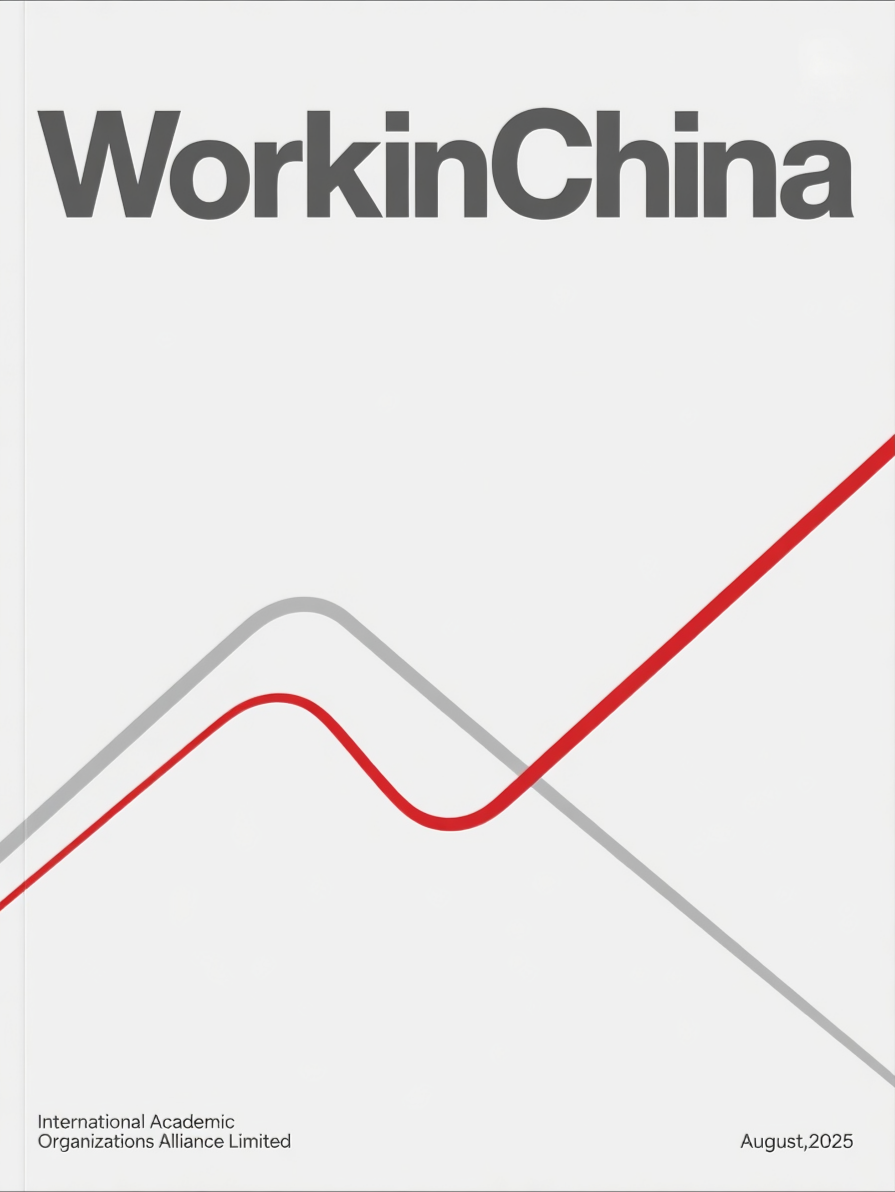Mind Map of WorkinChina Magazine Columns
Guo Siqiao
I. Core Positioning Section
- Editorial Purpose: With the rapid development of China's economy and the acceleration of its modernization drive, the employment environment for foreign students in China after graduation has also undergone changes. At the same time, overseas returnees are facing the same confusions and needs. Therefore, WorkinChina magazine, as a career guidance resource, has emerged as the times require, and its practical value has become increasingly prominent in the workplace of modern Chinese and foreign students.
- In view of this, the core value positioning and editorial purpose of WorkinChina is to provide foreign students in China and overseas returnees with crucial practical information such as employment policies and regulations, employment demand information, career guidance, employment procedure handling, as well as the employment market environment and trends. This enables them to fully understand various regulations issued by relevant Chinese government departments before graduation, thereby making adequate psychological preparations.
- Its ultimate goal is:Build a bridge for understanding China’s workplace, conduct in-depth analysis of the context of China’s career development from a cross-cultural perspective, promote global talent exchange and workplace civilization mutual learning, assist international talents in integrating into China’s workplace ecosystem, and drive China’s workplace experience to the world stage.
- Content Positioning: Balance academic rigor and practicality, including in-depth academic research on China’s workplace changes, first-hand experience sharing from industry leaders, and authoritative interpretations of national policies and regulations.
- Reader Positioning: International students in China, returned talents, foreign professionals, global professionals and scholars concerned about China’s workplace.
Editorial Goals:
- Short-term: Become the primary information source for international talents to understand China's workplace and entrepreneurial environment.
- Medium-term: Build a core community for cross-cultural workplace communication and entrepreneurial cooperation.
- Long-term: Shape a globally influential discourse system for China's workplace research and innovation & entrepreneurship practices.
II. "Career Navigation for International Students" Column
Study-related
- Skills for utilizing academic resources in Chinese universities, such as participating in academic societies and applying for research projects.
- Methods to transition from one's home country's education system to China's academic environment.
Life-related
- Practical life information including accommodation, transportation, and catering.
- Suggestions for quickly adapting to China's pace of life and integrating into local communities.
Work-related
- Analysis of Chinese enterprises' recruitment preferences, resume optimization techniques, and differences in interview cultures.
- Ways to leverage internship opportunities to accumulate industry resources and demonstrate advantages in cross-cultural teams.
Visa-related
- Interpretation of application procedures, duration regulations, and conversion conditions for various visas.
- Guidelines and policy interpretations for work visas and entrepreneurship visas for those who wish to work or start businesses in China after graduation.
Culture-related
- Introduction to Chinese workplace etiquette and interpersonal communication rules.
- Analysis of the manifestation of traditional festivals and customs in work scenarios.
Entrepreneurship-related
- Preferential admission conditions for international student entrepreneurship parks in various regions and channels for applying for entrepreneurship subsidies.
- Case sharing of successful international student entrepreneurs, covering project conception, team building, market development, financing strategies, etc.
- Popular science on entrepreneurial legal knowledge, including intellectual property protection and enterprise registration procedures.
III. "Career Integration for Returnees" Column
Innovation-related
- Analysis of the demand for returnees' innovative capabilities in different enterprises, such as agile development thinking required by internet giants and international strategic layout capabilities needed by traditional enterprises.
- Cases and expert suggestions on integrating overseas project management experience and cutting-edge technical knowledge with domestic market demand, e.g., applying advanced overseas environmental protection technologies to domestic carbon neutrality practices.
Entrepreneurship-related
- Interpretation of entrepreneurship support policies for returnees, such as tax reductions, entrepreneurship guarantee loans, and preferential admission to entrepreneurship parks.
- Story sharing of successful returned entrepreneurs, including localizing advanced overseas business models, creating innovative products tailored to Chinese market demand, building cross-cultural entrepreneurial teams, and connecting with domestic capital resources.
- Provision of practical entrepreneurial information, such as enterprise registration procedures, intellectual property protection, and market research methods.
Adaptation Skills
- Suggestions for adapting to domestic workplace communication methods and team collaboration models.
- Methods to cope with local market rules and business cultural differences during entrepreneurship.
Supporting Policies
- Sharing of supporting policies for returned talents in terms of household registration, housing, and children's education.
IV. "Global Innovators in China" Section
Policy Interpretation
- Local innovation policies, such as tax incentives in free trade zones and certification standards for high-tech enterprises.
Resource Connection
- Industrial park resources, including laboratory sharing and supply chain cooperation.
- Building bridges for cooperation with local investment institutions and industry associations, and regularly holding online and offline matchmaking meetings.
Experience Sharing
- Experience in cross-cultural team management, such as balancing work styles of employees from different cultural backgrounds and establishing efficient communication mechanisms.
Market-related
- Analysis of market access issues concerned by global entrepreneurs, including interpretation of industry access standards and suggestions for selecting partners.
Research Transformation
- Introduction to domestic research project application channels and industry-university-research cooperation models, such as establishing joint laboratories with universities and participating in national major science and technology projects.
About the Authors
Guo Siqiao
Editor, WorkinChina
